
Morehouse College is a private historically Black, men's, liberal arts college in Atlanta, Georgia. Anchored by its main campus of 61 acres (25 ha) near Downtown Atlanta, the college has a variety of residential dorms and academic buildings east of Ashview Heights. Along with Spelman College, Clark Atlanta University, and the Morehouse School of Medicine, the college is a member of the Atlanta University Center consortium.
Historically black colleges and universities (HBCUs) are institutions of higher education in the United States that were established before the Civil Rights Act of 1964 with the intention of primarily serving African Americans. Most of these institutions were founded during the Reconstruction era after the Civil War and are concentrated in the Southern United States. They were primarily founded by Protestant religious groups, until the Second Morill Act of 1890 required educationally segregated states to provide African American, public higher-education schools in order to receive the Act's benefits.

Spelman College is a private, historically Black, women's liberal arts college in Atlanta, Georgia. It is a founding member of the Atlanta University Center academic consortium. Founded in 1881 as the Atlanta Baptist Female Seminary, Spelman awarded its first college degrees in 1901 and is the oldest private historically Black liberal arts institution for women.
The Koch family foundations are a group of charitable foundations in the United States associated with the family of Fred C. Koch. The most prominent of these are the Charles Koch Foundation and the David H. Koch Charitable Foundation, created by Charles Koch and David Koch, two sons of Fred C. Koch who own the majority of Koch Industries, an oil, gas, paper, and chemical conglomerate which is the US's second-largest privately held company. Charles' and David's foundations have provided millions of dollars to a variety of organizations, including libertarian and conservative think tanks. Areas of funding include think tanks, political advocacy, climate change denial, higher education scholarships, cancer research, arts, and science.

Bethune–Cookman University is a private historically black university in Daytona Beach, Florida. Bethune–Cookman University is affiliated with the United Methodist Church. The primary administration building, White Hall, and the Mary McLeod Bethune Home are two historic locations.

Louis Allen Rawls was an American baritone singer, record producer, composer and actor. Rawls released 61 albums, sold more than 40 million records, and had numerous charting singles, most notably the song "You'll Never Find Another Love like Mine". He also worked as a film, television and voice actor. He was a three-time winner of the Best Male R&B Vocal Performance Grammy Award.

Mary Jane McLeod Bethune was an American educator, philanthropist, humanitarian, womanist, and civil rights activist. Bethune founded the National Council of Negro Women in 1935, established the organization's flagship journal Aframerican Women's Journal, and presided as president or leader for a myriad of African American women's organizations including the National Association for Colored Women and the National Youth Administration's Negro Division.

Frederick Douglass Patterson was an American academic administrator, the president of what is now Tuskegee University (1935–1953), and founder of the United Negro College Fund. He was a 1987 recipient of the Presidential Medal of Freedom, the nation's highest civilian honor, and 1988 recipient of the Spingarn Medal from the NAACP.
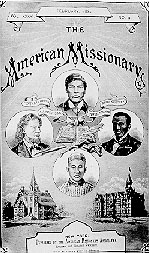
The American Missionary Association (AMA) was a Protestant-based abolitionist group founded on September 3, 1846 in Albany, New York. The main purpose of the organization was abolition of slavery, education of African Americans, promotion of racial equality, and spreading Christian values. Its members and leaders were of both races; The Association was chiefly sponsored by the Congregationalist churches in New England. The main goals were to abolish slavery, provide education to African Americans, and promote racial equality for free Blacks. The AMA played a significant role in several key historical events and movements, including the Civil War, Reconstruction, and the Civil Rights Movement.
The Thurgood Marshall College Fund (TMCF) is an American non-profit organization that supports and represents nearly 300,000 students attending its 47 member-schools that include public historically black colleges and universities (HBCUs), medical schools, and law schools. The organization is named after the Supreme Court's first African-American Justice, Thurgood Marshall.

Richard Robert Wright Sr. was an American military officer, educator and college president, politician, civil rights advocate and banking entrepreneur. Among his many accomplishments, he founded a high school, a college, and a bank. He also founded the National Freedom Day Association in 1941.
Herman Hodge Long was an American college administrator and author of several pioneering studies dealing with race relations. He served as president of his alma mater, Alabama's Talladega College, from 1965 to 1976, while concurrently serving as president of the United Negro College Fund from 1970 to 1975.
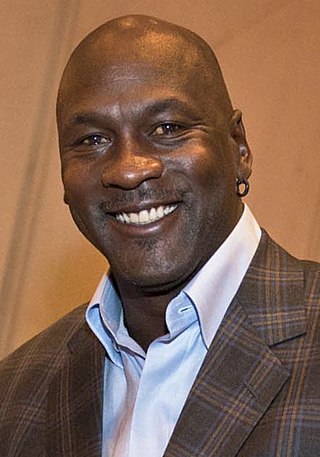
The African-American upper class, sometimes referred to as the black upper class, the black upper middle class or black elite, is a social class that consists of African-American individuals who have high disposable incomes and high net worth. The group includes highly paid white-collar professionals such as academics, engineers, lawyers, accountants, doctors, politicians, business executives, venture capitalists, CEOs, celebrities, entertainers, entrepreneurs and heirs.
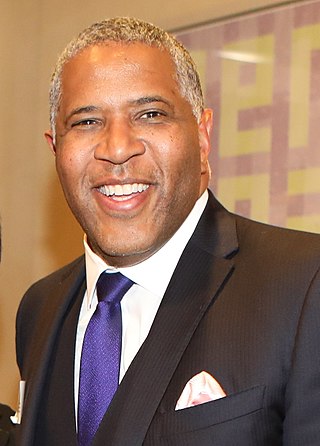
Robert Frederick Smith is an American billionaire businessman and philanthropist. He is the founder, chairman, and CEO of private equity firm Vista Equity Partners. He graduated from Cornell University with a chemical engineering degree and from Columbia Business School with an MBA, before working as an investment banker at Goldman Sachs. In 2019, while delivering the commencement speech at Morehouse College, Smith pledged to pay off the entire $34 million of student loan debt of all of the members of the 2019 graduating class.
William Johnson Trent, Jr. (1910-1993) was an African-American economist, non-profit director and civil rights activist from Atlanta, Georgia.
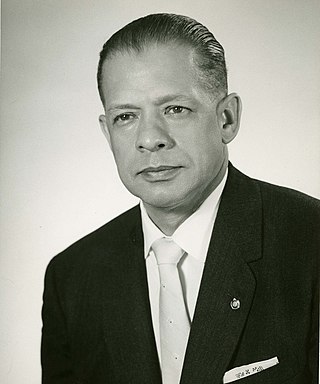
John Hervey Wheeler was an American bank president, businessman, civil rights leader, and educator based in North Carolina. Throughout his life, Wheeler was recognized for his accomplishments by various institutions across the country. John H. Wheeler started as a bank teller at Mechanics and Farmers Bank, and worked his way up to become the bank's president in 1952. In the 1960s, Wheeler became increasingly active in United States politics, carrying several White House positions appointed by Presidents John F. Kennedy, Richard Nixon, and Lyndon B. Johnson.
Billy C. Hawkins is an American academic administrator, and teacher. He served as a past president of Talladega College. Hawkins also serves as a board member of the United Negro College Fund and is a past member of the White House Board of Advisors on historically black colleges and universities.
Kenneth F. Space (1903–1971) was a pictorial journalist, documentary filmmaker, cinematographer and commercial photographer in the 1930s and 1940s. He is most known with his photographic and documentary film work capturing African American life in the American South for the Harmon Foundation.
Charles Phillip Bailey Sr. was a U.S. Army Air Force officer and one of the Tuskegee Airmen's most decorated combat fighter pilots. He was Florida's first African American fighter pilot. He flew 133 missions over Europe and North Africa, and was credited with shooting down two enemy aircraft.
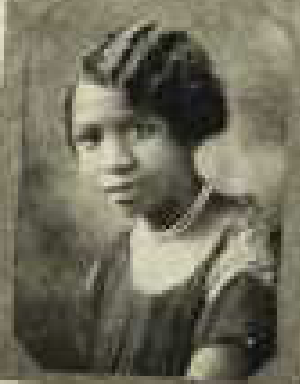
Ethna Beulah Winston was an American educator. She was dean of women and chair of the education department at Tougaloo College in Mississippi, and dean of women at Clark Atlanta University.













